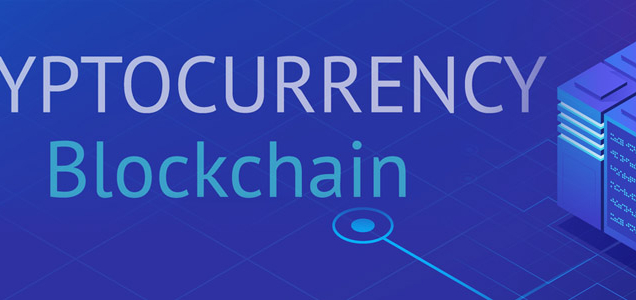How Blockchain Technology is Impacting the Mortgage Industry
Dezember 30, 2023, 10:00 AM | The content is supplied by a Guest author
Mortgages have a long and illustrious history, and in terms of financial products it’s hard to think of anything more ingrained in the traditional foundations of this industry. You might be surprised to learn that in spite of their venerable nature, mortgages and the lenders that offer them to customers are actually being transformed by the rise of the blockchain. Whether you’re a current homeowner, a property investor, or a first time buyer, it’s worth finding out more about the growing role of blockchain tech in the mortgage industry. Here’s a look at the basics to give you a jumping off point for your research.
 Quick introduction to the blockchain
Quick introduction to the blockchain
While it sounds complex, blockchain tech is simple enough to explain. At its core it’s a form of database, albeit one that’s geared towards facilitating transactions between two or more parties outside of the incumbent financial system.
The importance of smart contracts
A mechanism of the blockchain that’s particularly relevant to the mortgage industry is the humble smart contract. This functions like a traditional contract, in the sense that buyers and sellers can agree to and abide by the terms set down. But here, the whole process is verified across a decentralized network, making it eminently transparent and entirely traceable, as well as crucially impossible to undo.
The benefits for buyers, sellers, and brokers
The advantages of blockchain tech in the context of mortgages are extensive, and includes elements such as:
Affordability
Getting a mortgage is a costly process, with fees and charges applicable at many points along the journey. With modern dwelling mortgages backed by the blockchain, there are fewer parties involved, and so the price to see a transaction through to completion can be significantly lower.
Efficiency
For hundreds of years, mortgages have required the exchange of physical, paper documents. This is a time-consuming process, and is also open to the likelihood of mistakes being made. Smart contracts hosted on a blockchain network don’t suffer from any such issues, and can be put into action swiftly and executed in seconds. This reduces the time it takes to complete transactions significantly, making it less stressful for all involved.
Security
The multifaceted security measures that are in place on the blockchain deserve praise, particularly in comparison with the older systems and solutions which have proven to be far more fallible. So rather than precious, private data being at the whim of hackers, info stored in this manner is as safe as possible, and far less likely to suffer any form of third party exploitation.
Decentralization
We’ve already touched on some of the areas in which decentralization makes sense from a mortgage perspective, but it’s worth restating that by removing traditional institutions from the equation, it’s a faster and more affordable process for buyers and sellers alike. Trust in banks has been eroded several times in recent years, and the blockchain serves as an alternative solution that puts power back in the hands of the people who use it.
Clarity
With a mortgage transaction, it’s important for all the information to be clear, and for the responsibilities of each party to be unambiguous. Since every record on the blockchain can be analyzed and traced, there’s no room for obfuscation, and it’s always possible to go back and review what transpired if questions are raised further down the line.
Key takeaways
We’re really only in the early stages of blockchain technology switching things up in the mortgage industry, and in the world of finance more generally. That means there are opportunities for early adopters to reap the benefits ahead of the rest of the market, and enjoy more seamless property transactions today.
Regulated Brokers
The table below contains links to 3rd party websites of our top partners from whom we receive compensation at no additional cost to you.













